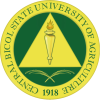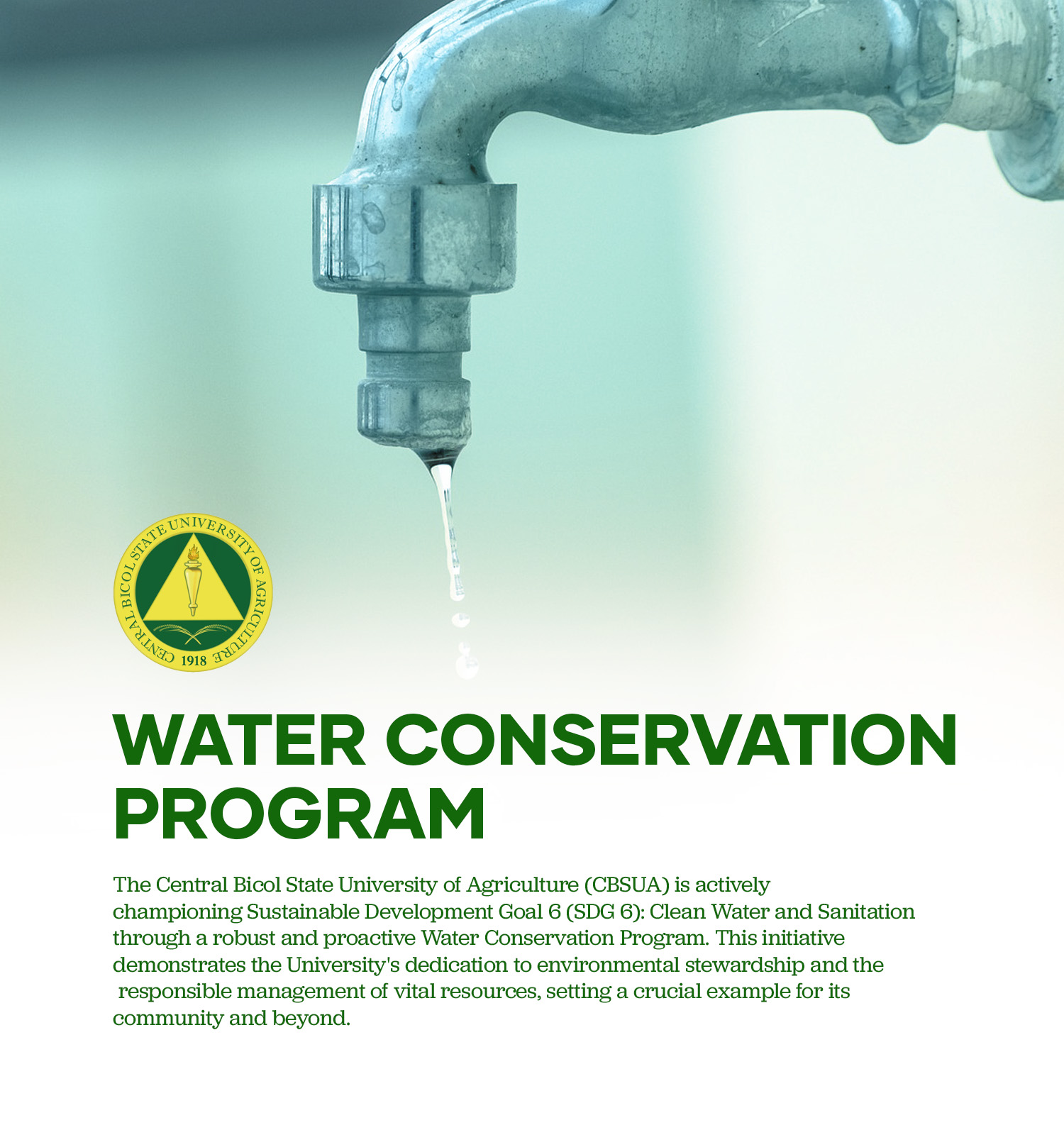The Central Bicol State University of Agriculture (CBSUA) is actively championing Sustainable Development Goal 6 (SDG 6): Clean Water and Sanitation through a robust and proactive Water Conservation Program. This initiative demonstrates the University’s dedication to environmental stewardship and the responsible management of vital resources, setting a crucial example for its community and beyond.
CBSUA’s program is founded on established national and institutional mandates, ensuring its longevity and effectiveness. The policy’s roots trace back to A.O No. 103 (2004), which mandated austerity measures in the government, and has been refined through subsequent internal memorandums, most notably CBSUA Office Memo No. 140 (2011). These guidelines outline specific, actionable steps designed to reduce wastage and foster a culture of conservation within the campus. These efforts are CBSUA’s contribution toward achieving SDG 6: Clean Water and Sanitation.
𝗞𝗲𝘆 𝗖𝗼𝗺𝗽𝗼𝗻𝗲𝗻𝘁𝘀 𝗼𝗳 𝘁𝗵𝗲 𝗪𝗮𝘁𝗲𝗿 𝗖𝗼𝗻𝘀𝗲𝗿𝘃𝗮𝘁𝗶𝗼𝗻 𝗣𝗿𝗼𝗴𝗿𝗮𝗺
The policy focuses on several key areas, ensuring both infrastructure integrity and behavioral change:
Immediate Leak Repair: The Physical Plant Division is mandated to ensure that leaking pipes and faucets are immediately repaired. This proactive maintenance prevents the constant, unseen waste of thousands of gallons of water annually, directly addressing infrastructure-related inefficiency.
Controlled Use for Vehicles: The washing of vehicles is strictly limited to CBSUA-owned vehicles only. Furthermore, private vehicle owners are prohibited from using water facilities connected to CBSUA meters for this purpose. This curtails non-essential, high-volume water consumption.
Restrictions on Personal Use: To manage campus-wide consumption, all personnel, students, and outsiders (excluding official guests at the Training Center, Ecotel, and Apartment) are prohibited from using CBSUA water for taking a bath, washing clothes, or personal belongings. This measure prioritizes water for essential academic and operational needs.
Vigilance and Accountability: Roving guards and department heads are tasked with periodically checking whether faucets are closed before leaving premises. This simple, yet critical, measure instills accountability and prevents accidental waste across all departments and facilities.
𝗠𝗼𝗻𝗶𝘁𝗼𝗿𝗶𝗻𝗴 𝗮𝗻𝗱 𝗣𝘂𝗯𝗹𝗶𝗰 𝗔𝘄𝗮𝗿𝗲𝗻𝗲𝘀𝘀
A core feature of the program is its commitment to transparency and data-driven conservation.
Systematic Monitoring: Water consumption (meter reading) records are forwarded monthly by the Accounting Office to the Resilience Center. This centralized monitoring is essential for tracking performance against SDG 6, Target 6.4: Increase water-use efficiency.
Comparative Analysis and Reminders: The monthly consumption data is then compared to the previous year’s monthly consumption. The results are subsequently published through the university email system to serve as a monthly reminder to the community, highlighting trends and encouraging consumers to maintain or reduce their usage.
CBSUA’s Water Conservation Program is a direct and impactful contribution to SDG 6, particularly addressing the need for improved water-use efficiency and integrated water resources management. By fixing leaks, restricting non-essential uses, and implementing a rigorous monitoring and awareness system, the University is demonstrating that sustainability is a collective effort rooted in sound policy and consistent action.
The commitment of CBSUA to conserving water ensures that this precious resource is available for both current and future generations, reinforcing its role not just as an educational institution, but as a leader in practical environmental sustainability.



